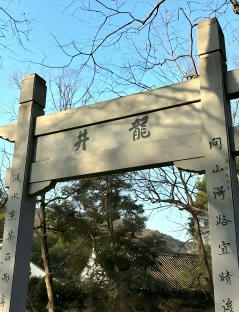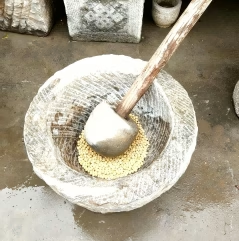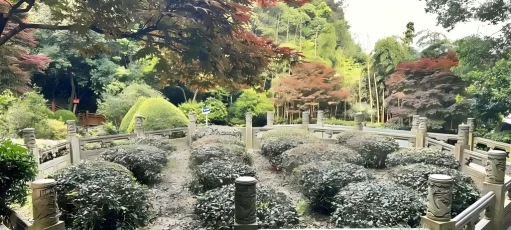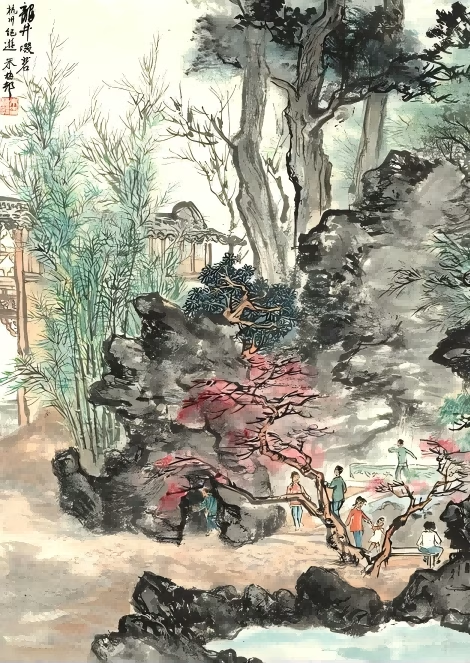The exceptional quality of Longjing tea has long been praised by tea connoisseurs. But there’s a legendary story behind it.
Expert Comments on Longjing Tea
Gao Lian of the Ming Dynasty said,
“西湖之泉以虎跑为最,两山之最,两山之茶,以龙井为佳。”
Means “Of all the springs in West Lake, Hupao is the finest.Of the two mountains, Longjing is the finest tea.” Longjing tea from Hupao Spring is a renowned Hangzhou specialty.
“从来佳茗似佳人”。
“Fine tea is always like a beautiful woman.” Song Dynasty tea expert Su Dongpo also left a timeless quote about Longjing tea.
During his trip to the south of the Yangtze River, Emperor Qianlong tasted Longjing tea at the Hugong Temple at the foot of Shifeng Mountain. He was so impressed that he named the eighteen tea trees in front of the temple “Imperial Tea,” and they still thrive today.
The Origin of the Name of Longjing Tea
Longjing is the name of a spring, formerly known as Longhong. It is located to the left of the old Longjing Temple, which dates back over 1,700 years. Legend has it that during the Zhengde period of the Ming Dynasty, a large stone shaped like a swimming dragon was unearthed from the bottom of the well, hence the name Longjing.

The Lonely Old Lady
Once upon a time, Longjing was a desolate little village. A dozen or so households dotted the valley. At the edge of the village stood a dilapidated, leaky thatched cottage, where an old lady lived.
The old lady, childless and alone, lived in poverty. Her age prevented her from climbing the mountains or working the fields. She could only care for the eighteen old tea trees behind her house.
Kind-hearted Auntie
The old auntie was a kind person. Although her life was quite hard, she always saved some tea leaves each year. She would make a pot of tea every day and set up two benches under the awning at the doorway, providing a place for travelers to quench their thirst while they were going up and down the hills.
A New Year’s Eve Adventure
One New Year’s Eve, heavy snow fell. Neighbors had all prepared for the Lunar New Year by buying some New Year’s goods. The old woman’s family was truly poor. The rice jar was almost empty, and apart from a few handfuls of aged tea leaves in the jar, there was nothing else left.
But she still followed her old routine. She rose early in the morning, gathered the tea leaves and placed them in a pot. She lit a strong fire and sat in front of the stove, making tea.
Suddenly, there was a creaking sound, and the door of the thatched cottage opened. An old man entered, his clothes covered in snowflakes. The old woman hurriedly stood up and greeted him, “Uncle, the snow is blowing hard in the mountains. Come in and sit down.”
The old man brushed off the snowflakes. He walked into the house, warming himself by the fire in the stove, and spoke to the old woman, “Old woman, what’s cooking in that pot?”
“I’m cooking tea!”
“Today is New Year’s Eve, and tomorrow’s the Lunar New Year. Everyone’s busy preparing the three animals for the gods, so why are you making tea?”
The old woman sighed and said, “Alas, I’m an old, lonely woman and poor. I can’t afford the three animals for the gods. I just make tea every day to make it easier for passersby.”
The old man laughed and said, “Not poor, not poor. You have a treasure at your door.”
The old woman was surprised and looked outside. Apart from two old benches under the porch and a broken stone mortar in the corner, everything was the same. Where did the treasure come from?

“Oh, how can I take your treasure for nothing? If you’re willing to part with it, just sell it to me. I’ll get someone to carry it.”
The old man finished his words and walked off into the heavy snow.
Good intentions lead to bad consequences.
The old woman looked at the broken stone mortar and thought, “How can anyone move this filthy mortar?”
She scooped the old garbage from it into a dustpan and buried it at the base of the eighteen tea trees behind the house. Then went to Longjing and fetched a bucket of clean water, scrubbing the broken mortar clean. She also poured the dirty water at the base of the old tea trees.
Just as she had cleaned the mortar, the old man arrived with his men. When he got to the door and took a look, he cried out, “Oh, where’s the treasure? Oh, where’s the treasure?”
The old woman became increasingly confused. She pointed at the broken stone mortar and said, “This—isn’t it perfectly placed?”
“Hey, where did you put the contents?”
“I poured it out at the base of the tea tree behind the house.”
The old man went around to the back of the house and saw that it was indeed the case. He stamped his feet and said, “What a shame! The treasure of this broken stone mortar is buried in that pile of old garbage. Since you buried it at the base of the tea tree, let these eighteen old tea trees be blessed.” He said this and led his men away.
Eighteen Old Tea Trees Planted Throughout the Mountains

After New Year’s Eve, spring arrived quickly. That year, the eighteen old tea trees behind the old lady’s house sprouted dense, lush green buds. The tea leaves they plucked were fine, tender, and fragrant.
Seeing the prosperity of the old lady’s tea trees, the neighbors cut down the bamboo and harvested the grain. Using the seeds from these eighteen tea trees, they planted tea trees on hilltops near and far. Year after year, the trees grew more and more numerous and flourished. Eventually, the entire Longjing area was covered in tea trees.
Because the tea leaves produced in this area are fine, tender, and fragrant, and their brewed flavor is exceptional, “Longjing Tea” became famous throughout the region.
To this day, tea farmers say that the eighteen dwarf tea trees behind the old lady’s house are the ancestors of “Longjing Tea.”


Leave a Reply